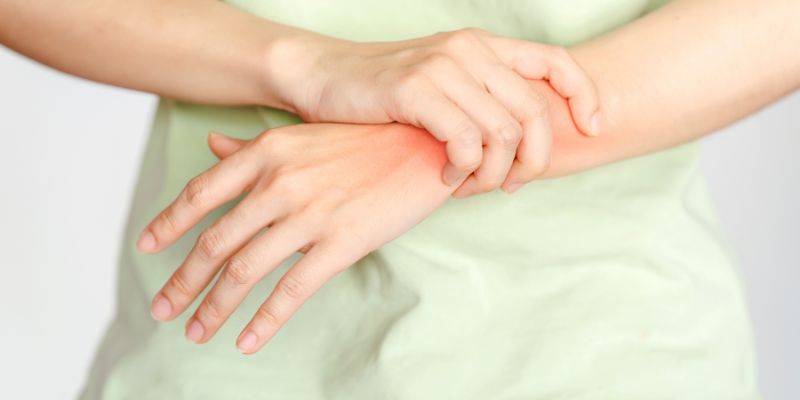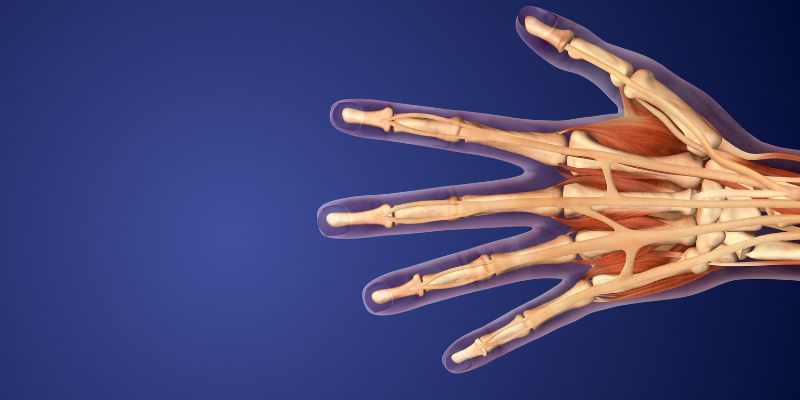Rheumatoid Arthritis: Common Causes, Type, Symptoms, And Treatment
Oct 14, 2024 By Isabella Moss
Rheumatoid arthritis (RA) is an autoimmune condition with long-lasting effects. It mostly affects the joints. When the immune system attacks joint tissue by mistake, it causes inflammation, pain, and possibly joint damage. More common in women, RA often strikes between the ages of 30 and 60.
Early identification and therapy are crucial for managing this disorder and avoiding long-term joint damage. Knowing the common causes of rheumatoid arthritis symptoms will enable people to seek appropriate treatment and increase their quality of life.

Typical Causes Of Rheumatoid Arthritis
The precise cause of rheumatoid arthritis is unknown. Still, a number of elements could help it develop. Since those with a family history of RA are more prone to the disorder, genetics are clearly important. Particular genes linked to the immune system could raise the possibility of the immune system attacking joint tissues inadvertently. Environmental elements also matter. A key risk factor is smoking since it has been demonstrated to raise RA risk, particularly in those with genetic predispositions.
Additionally, hormonal changes could help start rheumatoid arthritis. Many women develop the condition following hormonal changes, such as menopause or gestation. In some circumstances, RA may be triggered by infections or viral exposures. Although no one infection has been found as the source, some bacteria and viruses are thought to affect the immune system, which increases the likelihood of targeting healthy tissue. Early rheumatoid arthritis treatment depends on an awareness of the interactions among these environmental and genetic causes.
Types Of Rheumatoid Arthritis
Rheumatoid arthritis can be categorized into several forms based on specific antibodies in the blood. Hence, it is crucial to grasp these Different types of rheumatoid arthritis diagnosis and customized treatment approaches. Knowing your kind can also help you choose the best treatments and predict the course of the illness.
Seropositive Rheumatoid Arthritis
- The most often occurring type of RA is this one.
- Found when the blood has particular antibodiesrheumatoid factor or anti-CCP.
- Usually, it results in more severe symptoms and destruction of joints.
- Usually, it results in rheumatoid nodules under the skin developing.
Seronegative Rheumatoid Arthritis
- It is diagnosed when the usual RA symptoms appear, but antibodies are lacking.
- Though less severe, symptoms can cause harm to joints.
- Needs comparable treatment to seropositive RA but may show differently with time.
Juvenile Rheumatoid Arthritis
- influences youngsters younger than sixteen.
- Should treatment be neglected, it can cause joint injury and incapacity.
- For optimum results, early intervention is necessary.
Understanding these several forms of rheumatoid arthritis helps patients and doctors create a customized treatment plan that addresses each type's particular difficulties and dangers.

Symptoms of Rheumatoid Arthritis
Usually starting slowly, rheumatoid arthritis symptoms first show themselves as joint pain, stiffness, and swelling. The most often afflicted joints are the hands, wrists, and knees. Usually occurring symmetrically, these symptoms suggest that both sides of the body suffer the same consequences. One classic indication of RA is morning stiffness lasting more than thirty minutes. Common symptoms are fatigue, fever, and loss of appetite since RA can produce general body inflammation, not only in the joints.
More severe symptoms, including joint abnormalities and loss of functioning, might arise as the disease advances. The prolonged inflammation might eventually cause the cartilage and bones in the joints to disintegrate, therefore causing permanent damage. Other organs, including the heart, lungs, and eyes, can also be impacted by rheumatoid arthritis. Because of their bodies' continuous inflammation, those with RA are more likely to develop cardiovascular disease or lung problems. Preventing more damage and controlling the general health of people with RA depends on constant observation of symptoms.
Effective Treatments For Rheumatoid Arthritis Pain
Although rheumatoid arthritis cannot be cured, numerous treatments can help to control symptoms and slow down the course of the condition. Preserving mobility and avoiding joint injury depend on early therapy. Medications such as nonsteroidal anti-inflammatory medicines (NSAIDs) are often recommended to lower inflammation and ease discomfort. More severe cases could call for corticosteroids to reduce inflammation rapidly. Often administered to stop joint destruction and slow down the course of the disease, disease-modifying antirheumatic medications (DMARDs), including methotrexate.
Newer medications and biological medicines target certain immune system components engaged in the inflammatory process. These medicines can be more successful for those who find no response to conventional DMARDs. Another necessary element of RA treatment is physical therapy. While occupational therapy can educate people on how to complete daily tasks without straining their joints too much, regular exercise can assist in maintaining joint flexibility and strength. Sometimes, damaged joints must be rebuilt with artificial ones or corrected with surgery.
Lifestyle Changes For Managing Rheumatoid Arthritis
Altering one's lifestyle can greatly enhance one's quality of life for those with rheumatoid arthritis. A balanced diet of anti-inflammatory foodsfruits, vegetables, and omega-3 fatty acidscan help lower inflammation and improve joint health. Maintaining a good weight is also crucial since extra weight strains the joints more severely. Managing RA requires constant exercise. Without exacerbating symptoms, low-impact exercises, including swimming, cycling, and yoga, can increase joint flexibility and help lower stiffness.
Another important component in controlling RA is stress management since it aggravates symptoms and inflammation. Techniques for mindfulness, meditation, and relaxation can help people control stress better. Maintaining general well-being and managing rheumatoid arthritis depends on keeping current with new treatment choices as they become available.
Conclusion:
Rheumatoid arthritis is a complicated disorder that affects millions of people globally. Early diagnosis and successful treatment of rheumatoid arthritis depend on an awareness of its prevalent causes and several forms of RA. Although there is no cure, lifestyle modifications and treatment choices greatly reduce symptoms and stop joint degeneration. Early intervention and skilled healthcare professional support can help people with rheumatoid arthritis lead happy lives. Early on, control of the condition can significantly affect long-term health results.







